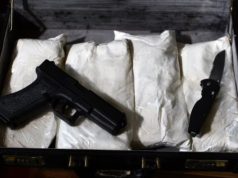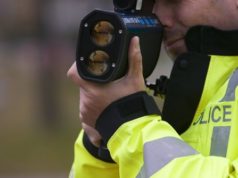
Homicide Detective Defined
Homicide detectives are a vital component of any criminal investigation team. They are responsible for investigating instances of homicide and working tirelessly to bring the perpetrators to justice. In this article, we will define what a homicide detective is, the required qualifications, and the duties they perform.
What is a Homicide Detective?
A Homicide detective is a member of law enforcement responsible for investigating and solving cases of homicide. A homicide detective is a highly trained and experienced investigator who is tasked with unraveling the complexities that surround a murder while working to establish the facts of the case.
Required Qualifications
To become a homicide detective, one must first qualify to work as a law enforcement officer. This generally means possessing a high school diploma or GED and attending a police academy. Once hired as a law enforcement officer, an individual must generally serve as a patrol officer for a period of time, typically two to four years, before being eligible to apply for a detective position.
In addition to these requirements, becoming a homicide detective often requires additional training, such as coursework in forensic sciences, criminal investigations, or advanced criminology. Strong communication and critical thinking skills are also essential.
Duties of a Homicide Detective
The duties of homicide detectives are varied, complex, and often require the ability to operate under pressure. Among other things, homicide detectives are responsible for:
– Collecting and analyzing evidence related to a homicide case
– Interviewing witnesses, victims, and suspects
– Coordinating efforts with other members of the investigation team, such as forensic experts and crime scene investigators
– Analyzing information to develop leads and identify suspects
– Preparing reports for prosecutors and testifying in court as needed
In addition to these duties, homicide detectives may be required to work long hours, often in high-stress environments. They may be called to the scene of a crime at any hour of the day or night, and they must be able to maintain their focus and professionalism in difficult circumstances.
Conclusion
Homicide detectives are an integral part of any law enforcement team, working to solve some of the most challenging crimes that occur in the community. Their work requires dedication, skill, and a deep understanding of human behavior and criminal behavior. If you are interested in pursuing a career as a homicide detective, it is important to understand the requirements, duties, and challenges associated with this unique and challenging profession.
What is a Homicide Detective?
A homicide detective is a member of law enforcement that coordinates murder investigations. These detectives work with a team of forensic experts to determine cause of death and indentify potential suspects. Becoming a homicide detective usually requires an advanced degree and several years of experience working in the police department. Contrary to media perceptions, it is also a very tedious and painstaking job that requires critical analysis and attention to minute details.
How Does One Become a Homicide Detective?
A criminal justice degree is essential for candidates wishing to pursue a career as a detective. In most jurisdictions, becoming a detective requires a certain amount of years as a police officer before being offered a promotion. Additionally, there are additional examinations required to prove competency for the position. Even then, most detectives will start in less complex divisions of the department such as vice or domestic violence before being promoted to homicide detective. Typically it takes at least five to six years between entering the police academy and earning a promotion to homicide detective.
What are Some Criminal Investigative Techniques Employed by Homicide Detectives?
A homicide detective primarily cultivates leads by speaking to witnesses as well as family members of the victim and suspects. As the lead investigator, the detective will identify and interrogate suspects in hopes of coaxing a confession. Contrary to popular media depictions, detectives cannot threaten violence to force confessions or cooperation, although they may lie and exert psychological pressure. They may also offer plea deals and other benefits in exchange for information.
The detective has the benefit of forensic specialists and other technicians that can aid the detective in identifying evidence and the scene of the crime and matching that evidence to the suspects. Forensic evidence such as blood, hair or saliva may link suspects to the scene of crime, which may also link them to the crime itself. Coroners perform autopsies to determine cause of death and possible murder weapons. Ballistics can identify specific weapons by the grooves left on the bullet by the gun’s barrel. In this way they can identify a murder weapon and tie it back to a suspect. There are other forensic techniques to identify forged documents and identification documents as well as handwriting analysis to decode letters and other forms of correspondence. It is the job of the detective to produce the evidence that will get the guilty party convicted in court.
Lastly, detectives have access to police records of convicted felons which they may review in hopes of producing a suspect. With a warrant, police are also able to search personal finance information and phone conversations.


























